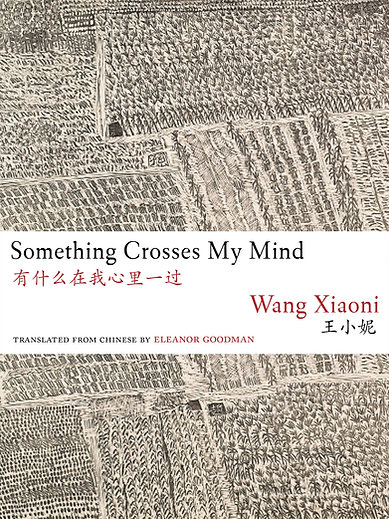
Eleanor Goodman is a writer and translator. She is a Research Associate at the Fairbank Center at Harvard University and spent a year at Peking University on a Fulbright Fellowship. Her book of translations, Something Crosses My Mind, by Wang Xiaoni was the recipient of a 2013 PEN/Heim Translation Grant. Goodman has been an artist in residence at the American Academy in Rome, was awarded a Henry Luce Translation Fellowship from the Vermont Studio Center and received the International Merit Award in Poetry from the Atlanta Review. Her work appears in publications such as PN Review, The Quarterly Conversation, Fiction, Pathlight, Cha, The Guardian, Pleiades, Acumen, Perihelion, The Los Angeles Review and on The Best American Poetry web site.

Judges’ Citation
What is so attractive about Wang Xiaoni’s poems as translated into English by Eleanor Goodman is her quiet, loving, meditative distance to the mostly anonymous and lonely heroes she clearly knows well.
Selected poems
by Eleanor Goodman
From Guangxi to Jiangxi
I glimpse rice-gleaners bent to the ground.
In province after province
the vegetation yellows
in province after province
this country was once willing to pave the ground with gold.
Still there are always people at dusk
looking like bent black nails.
Who will come to admire the ancient sorcery
of rice-gleaners turning a bit of gold into a grain of rice.
Don’t be like me hurrying along on the train
as though there’s urgent business
crossing three provinces in a single day
occasionally noting the earth is still adorned with rice-gleaners.
I want to call for them to stand up
to see the faces worth the least gold
to see the color of sweat they produce.
Copyright © Chinese 2014 by Wang Xiaoni / English Translation and Foreword 2014 by Eleanor Goodman
November’s Rice-Gleaners
the Chinese written by Wang Xiaoni
Everything becomes small
only the ocean makes the night’s leather clothes
open up the further out it spreads.
Flying north
to the right is Tianjin
to the left is Beijing
two clusters of moths flinging themselves at fire.
Then the East China Sea suddenly moves
the wind brings silver bits that can’t be more shattered
and many thick wrinkles whip up
I see the face of the ocean
I see the aged seashore
trembling and hugging the world too tightly.
I have seen death
but never seen death come back to life like that.
Copyright © 2014
Seeing the Ocean from a Night Flight
the Chinese written by Wang Xiaoni
On the mountainside field after field of wheat seedlings shiver
the farther up the more they tremble
the mountain will soon shake itself apart.
Spring borrows the wind
to spread a fear of heights even farther.
It seems a transparent weapon is hidden in the heart of the sky
it seems danger wants to drop down and stab us.
There is a bundle of light walking about
the sun is preparing to make the green even greener.
The wheat seedlings ooze bile in fear
one by one the mountaintops connect, light up.
The wheat keeps spreading into the pitch-black towns
the bread steamed on the fire breaks open.
Those who have eaten their fill go outside
to turn up a roiling red clay tail.
The red tail’s human leader also strolls up to the mountaintop
the only thing on earth that seems timid is the wheat.
The green color’s fear is of the hoe.
It’s of the piercing bright blade of the sickle.
And it’s of us, the flour-eaters.
Copyright © Chinese 2014 by Wang Xiaoni / English Translation and Foreword 2014 by Eleanor Goodman
Wheat Seedlings
the Chinese written by Wang Xiaoni